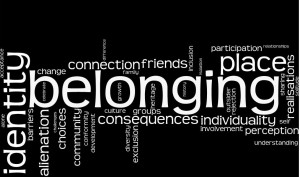 The subject of romantic love is so vast and dominant in our lives that it is generally the subject most music, books, operas, poems and plays are about. Romantic love is a major focal point in our culture and has been shown to be what is most often the subject people are discussing or thinking about throughout the day. But I am sure none of this surprises you, as the majority of us are “relationship focused.”
The subject of romantic love is so vast and dominant in our lives that it is generally the subject most music, books, operas, poems and plays are about. Romantic love is a major focal point in our culture and has been shown to be what is most often the subject people are discussing or thinking about throughout the day. But I am sure none of this surprises you, as the majority of us are “relationship focused.”
Last month I had an amazing opportunity to interview today’s leading scientist and researcher on the subject of “Romantic Love”, which has been the subject of her groundbreaking research since 2005, when her first book on the subject was published. Helen Fisher, PhD, Biological Anthropologist, is a research professor and member of the Center for Human Evolution Studies in the Department of Anthropology, Rutgers University and Chief Scientific Advisor to the Internet dating site, Chemistry.com (a division of Match.com). She has conducted extensive research and written five books on the evolution and future of human love, sexuality, marriage, gender differences in the brain as well as how your personality type shapes who you are and who you love.
For those of us in health practices, it is very common to hear from our patients the pain and heartbreak of their romantic relationships and whether or not they feel they can “ever trust or love another person again.” After being this deeply hurt, many of us would like to be able to just “put it behind us” and move on with our lives, but the research of Dr. Fisher and her team of scientists now explains why it is so painful and difficult to bounce back quickly from a broken heart and how difficult and sometimes desperate we can feel during that experience.
Dr. Fisher’s research on romantic love identifies the areas of the brain, the caudate nucleus and the ventral tegmental area, that show romantic love to be far more powerful and urgent that we may have previously believed. She says that romantic love “It’s really a drive that is deeply primordial and primitive.” She explains that romantic love experiences “…are way below the emotional center and in fact are not emotions at all, but rather a powerful drive and need that is shared by all human beings.”
There are additional studies, such as the Tylenol study out of the University of Kansas, College of Arts and Science, as well as the work of Geoff MacDonald, PhD, associate professor of psychology at the University of Toronto, who is an expert in romantic relationships, that show that “our brain centers cannot tell the difference between physical pain and emotional pain.” Dr. Fisher’s work identified this portion of the brain as the anterior insula, location for both physical pain, as well as heartache. The Tylenol study shows that this simple aspirin like compound can lower the discomfort of heartache as well as a headache.
Dr. Fisher’s research has included thousands of imaging studies both in the U.S. and in China. Through these studies, she and her research team has establish just how important it is for human beings to be in relationships where they experience reward for their feelings and efforts toward the significant other.
If you want to understand more about this fascinating subject and how to help yourself overcome the heartache of lost love, visit www.helenfisher.com where a book list on her research is available. You can also download a free excerpt from the bestselling, multi-award winning book Changing Behavior, by going to www.changingbehavior.org.
http://web.psych.utoronto.ca/gmacdonald/macdonald_social_pain_chapter.pdf
http://www.medicalnewstoday.com/releases/227298.php







